
- Millennials occupy 35% of the US labor force.
- The average annual salary of millennial workers is $71,566.
- The yearly turnover rate is 21%, which translates to $30.5 billion.
- By 2026, 3 in every 4 employees will be millennials.
Millennials in the workplace have been shaking things up.
Many millennial workers have just turned 30 years old, yet they have the drive and experience it takes to find lasting professional success. Millennials differ from other generations in several key areas, particularly their communication style. Face-to-face meetings, telephone conversations, and 9-to-5 business hours are increasingly being replaced by intranet software, social media, chat, email and instant messaging on a 24/7 basis.
If you want to utilize millennials to their full potential, keep them engaged in their work; and to reduce millennial turnover, you need to understand the core values and the communication style that define millennials.
What are Millennials in the Workplace
The presence of Millennials in the workplace has ushered in a paradigm shift, necessitating a nuanced approach to workforce management. Understanding the distinct needs and aspirations of Millennials in the workplace is pivotal, especially as they coexist with Baby Boomers and other generations.
Retaining Millennials demands a strategic response that acknowledges their values and expectations. Unlike previous generations, Millennials often prioritize work-life balance, professional growth, and purpose-driven work. To ensure their engagement and longevity within the organization, it’s imperative to offer avenues for continuous learning, opportunities for skill development, and a supportive environment.
Furthermore, creating intergenerational synergy between Millennials and Baby Boomers can significantly enrich workplace dynamics. Encouraging knowledge exchange and mentorship between these cohorts not only fosters collaborative learning but also helps harness the wisdom of experience and the innovation of youth.
Incorporating flexible work arrangements, emphasizing meaningful contributions, and nurturing a culture of open communication can enhance the workplace experience for Millennials. By valuing their unique perspectives while fostering cross-generational collaboration, organizations can create an environment that not only retains Millennials but also harnesses their potential to drive innovation and growth.
What Characteristics Define Millennials
Millennials in the workplace exhibit distinct characteristics that shape their interactions, contributions, and expectations. Understanding these traits is pivotal for organizations seeking to optimize their work environment for both Millennials and older generations.
Technological fluency is a hallmark of millennial employees. Having grown up in the digital age, they effortlessly navigate the tech landscape, making them valuable assets in an increasingly tech-driven world. Their aptitude for adapting to new tools and platforms can drive innovation and streamline processes within the workplace.
Collaboration is another defining trait. Millennials in the workplace often prioritize teamwork and open communication. They thrive in environments that encourage idea sharing and collective problem-solving. This inclination towards collaboration can foster a more dynamic and inclusive work culture, bridging generational gaps and promoting mutual learning.
Millennials’ strong desire for personal growth and development is a key driver of their work ethos. They seek roles that offer opportunities for skill enhancement and career progression. Organizations can tap into this motivation by providing regular feedback, skill-building workshops, and pathways for advancement.
In contrast to some older generations, millennials often value work-life balance and purpose-driven endeavors. They seek positions that align with their personal values and contribute to societal betterment. Employers that offer flexible work arrangements and emphasize the impact of their work can attract and retain millennial talent effectively.
Recognizing the strengths of millennial employees while fostering intergenerational understanding is pivotal. Collaborative initiatives that leverage the tech-savviness of millennials and the experience of older generations can lead to comprehensive problem-solving and innovative solutions. By creating an environment that accommodates both the aspirations of millennials and the wisdom of older colleagues, organizations can cultivate a harmonious and productive workplace that bridges generational differences and maximizes collective potential.
Millennial Values
Communication styles express the values of a given group—how members perceive others, how information should (or shouldn’t) be shared, what information is worth sharing in the first place. In order to communicate with millennials, you first need to understand what makes them tick.
13 Tips to Communicate with Millennials at Work
1. They appreciate honesty.
Ask a millennial what he or she thinks about something, and you’ll get a direct, truthful response—in fact, one that can sometimes sting. This can be a huge put-off for colleagues who are used to more diplomatic, even evasive communication styles that are designed to save face.
Millennials want to build a solid foundation of trust with their colleagues and managers, and sugar-coated exchanges won’t make this happen. Millennials are honest and to the point, and they know this makes for effective internal communication.
Encourage them to speak up on projects they’re working on, and solicit their opinion on projects outside of their immediate scope as well. They may have an idea or suggestion that can provide a fresh approach.
2. They want to be heard and share their expertise.
With unprecedented access to information, today’s up-and-coming millennials are exceedingly smart. They demonstrate tremendous promise and leadership potential at a young age. As a result, these millennials want to be a part of the decision-making process … now.
Those in leadership should expect that millennials will be highly forthcoming and knowledgeable when asked their thoughts on a particular decision. Even better than simply asking millennials their thoughts, add a set of robust knowledge management tools to your software stack and let their knowledge and expertise flow freely throughout your organization. Managers should listen to these new voices, let them know that they’re heard, and take their viewpoint into consideration to benefit the entire organization.
3. They’re looking for upward movement.
No self-respecting millennial wants to sit back and wait for that dream job to arrive, even if long-term chances for a promotion at the current workplace are good. In most cases, millennials are looking for upward movement, and they don’t expect it to take a lifetime.
Communication between managers and millennials can indicate if an employee is ready and willing to take on more responsibility. Even if your employee has only been with your company for a year or two, evaluate his or her performance, and offer a promotion if appropriate.
4. They want to speak to top-level leaders.
Millennials are an increasingly confident bunch, and they’re always looking to get to the source.
Whether it involves a major decision, a new project, or a simple desire to get to know their managers better, millennials want to communicate with top-level leaders whenever possible. This can throw some CEOs and managers off, as they may be used to working with employees who are more timid or less vocal. Ultimately, this direct communication style should be embraced as a way of creating transparency and encouraging new ideas.
One of making this two-way conversation accessible for evenyone in your company, including millennials, is to implement a company intranet that contains internal communications software built-in.
It allows information, news, and updates to be delivered across your organization, while at the same time giving employees the option to comment, ask questions, and further the discussion.
5. They like feedback and constructive criticism.
Feedback and constructive criticism are vital to professional development, and millennials are unusually open to this dynamic. Most millennials thrive on a quick back-and-forth with the manager or CEO, as they know it will improve individual and business performance.
Millennials don’t like to go through the motions blindly, so they’ll want to know how they’re doing. If you’re not steering them in the right direction with accurate feedback, they will easily lose interest and become disengaged. When providing feedback, tailor your approach to fit the millennial communication style—clear, direct, and collaborative.
6. Millennials communicate their needs. Just ask.
There was once a strong sense in the business world that if you didn’t absolutely need something, you didn’t ask for it. This “don’t complain unless you have to” attitude may be a method of staying out of trouble and keeping your job, but it doesn’t do your staff or your organization any favors.
Millennials strongly believe that their needs matter, and they aren’t afraid to speak up. Perhaps they need more time to finish a project or could use a personal day. Unlike previous generations of workers, millennials will let you know where they stand.
7. They want success for everyone involved.
Millennials are more globally connected and intuitively collaborative than their predecessors. On any given project, they truly want all participants to succeed and to be satisfied. As a result, millennials will post project updates on social intranets and copy all stakeholders on emails, rather than “hoarding” information for personal gain. Their focus is on the whole, and they view their colleagues as teammates.
Millennials are by definition “early adopters,” and not just when it comes to digital devices. They constantly seek fresh ideas, innovative approaches, and original insights. When employers internalize the concept that “newer is better,” communicating with millennials becomes easier and more productive.
8. They prefer optimism.
In previous business cultures, a dour demeanor was often equated with determination, gravity, and leadership skill. However, negative outlooks are no longer embraced by younger generations. Rather, millennials prefer to view the world with a sense of optimism, and they often look to CEOs and managers—such as the ever-smiling Richard Branson—as role models for positivity.
9. They thrive on passion and excitement.
It’s quite possible that the millennial generation is more driven than their predecessors. Millennials have grown up in a fast-paced world that rewards people for their hard work and achievements. Passionate and exciting dialogue can bridge the gap between millennials and those from other generations, and it can also help improve employee engagement and business productivity.
Millennial Time
As products of the digital and information revolution, millennials operate on a schedule that differs substantially from the traditional business timetable.
10. They prefer 24/7 availability.
Millennials tend to be available after “regular business hours” to a much greater extent than older professionals. Some of this has to do with youthful energy and the excitement of career advancement. However, much of this trend can be attributed to millennials having constant access to email, social media, and social collaboration tools. Smartphones have made 24/7 availability a reality, and hungry millennials often take pride in their quick, late-night responsiveness.
Because of their high-energy, hyper-connected work style, millennials often prefer to set their own schedules. Many managers understand that this flexibility can boost productivity and allow companies with a global reach to span multiple time zones.
11. Millennials juggle multiple conversations.
Most millennials will admit to juggling a number of conversations at the same time, whether personal or professional in nature. It’s important to understand, though, that this is not an indication that they’re not paying attention. Instead, it demonstrates that millennials are expert multitaskers, as many have grown up in a world where instant messaging, email, and even phone conversations are all handled at once.
Millennial Technology
So, given their values and their schedule preferences, how exactly do millennials communicate? Digital technology is the key.
12. They’re not into face-to-face communication.
There are plenty of times when communicating face-to-face is necessary. Many lasting business relationships are formed over lunches and at in-person events.
However, due to their penchant for multitasking and digital technology, many millennials would prefer to work remotely if possible and use business communication tools. Even when they’re attending an in-person meeting, millennials will constantly scan email and send texts, making face-to-face communication a matter of sharing screen time with a smartphone. Virtual meetings, by contrast, are faster, less costly, and more focused for the millennial.
13. Millennials think in terms of “social”.
One of the most important advancements in business technology over the past decade or so has been the introduction of the social intranet. intranet software serves as the collective mind of an organization, allowing employees to interact with each other in a real-time virtual environment whenever they want.
Many of today’s best intranet platforms place focus on the “social” aspects. Because many millennials grew up with Facebook, Twitter, and similar platforms, they think in terms of “social” … and it has made an impact on how they communicate.
Millennial Style
As you can see, millennials have a style all their own, and their communications reflect that unique voice.
14. They’re short and to the point.
Sometimes particular projects or issues require deep discussions in order to analyze processes, tasks, and resources. However, these discussions can often veer off topic, wasting time and money.
Millennials tend to take a brisker approach to business communication – short and to the point. Small talk can come later.
For millennials, the focus is on getting the job done accurately and effectively. After the workday is over, then it’s time to shift focus and engage with co-workers on a more personal level.
15. They have their own lingo.
Slang evolves with each generation. When was the last time you heard a guy referred to as a “cat?” Indeed, most millennials are quicker to call someone their “BFF” than they are to comment on something as being “far out.” Older slang terms are no longer part of the conversation, and if you’re going to employ millennials, learning their language will help you to better engage them. A word of caution, though — don’t overuse slang terms in general conversation, as you might appear to be trying too hard.
In Conclusion
Representing over 80 million Americans, the millennial generation is quickly gaining traction in the professional world. Sharp, savvy, and digitally dynamic, millennials are poised to revolutionize business communications. By understanding their values and communication style, you can leverage the tremendous power of the millennial worker for your organization.

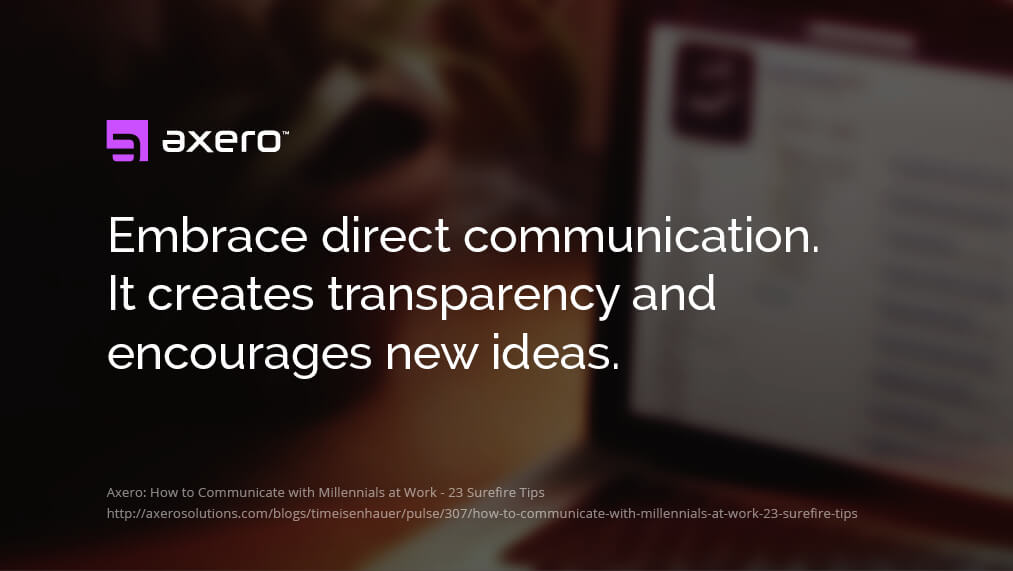
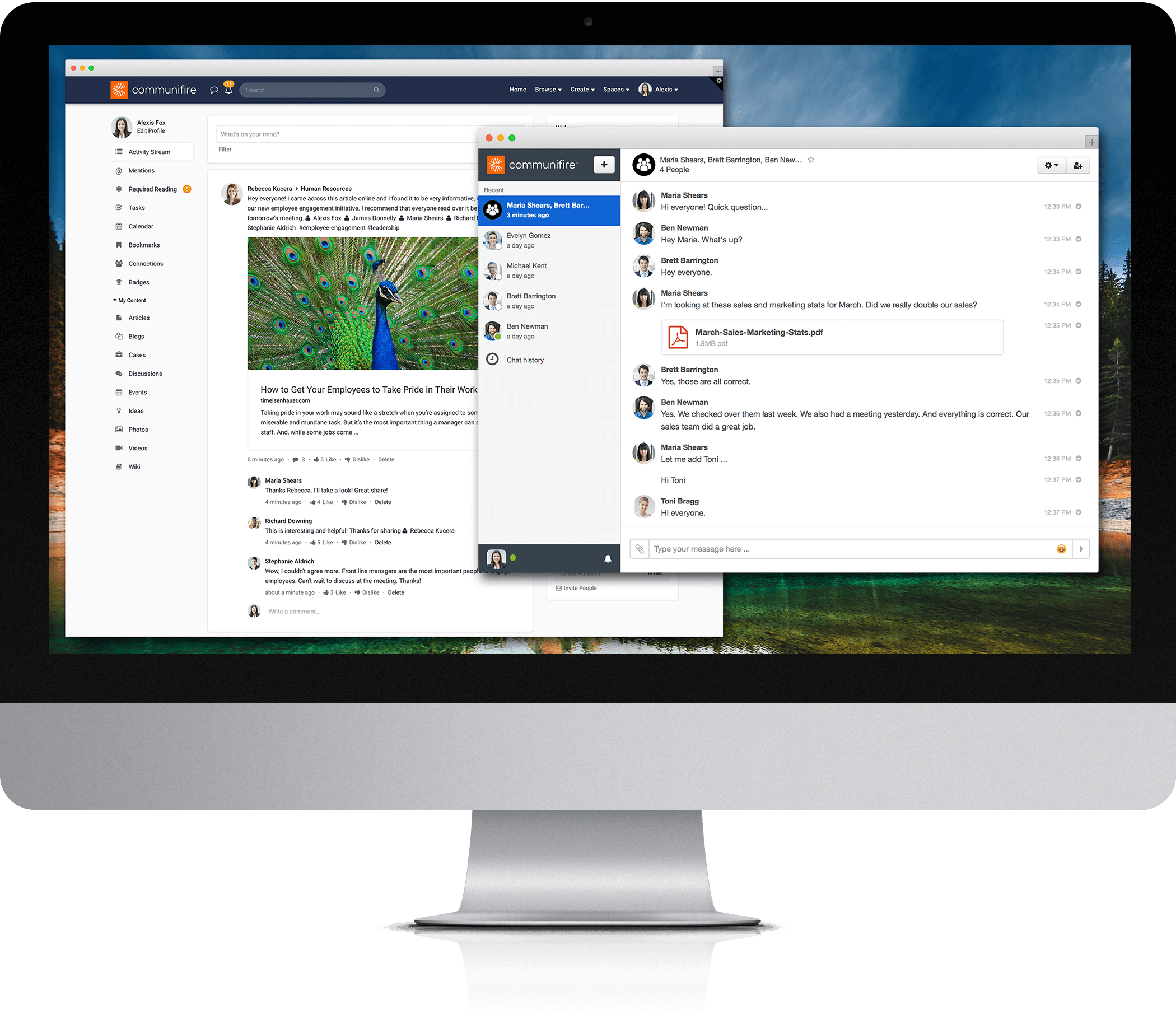

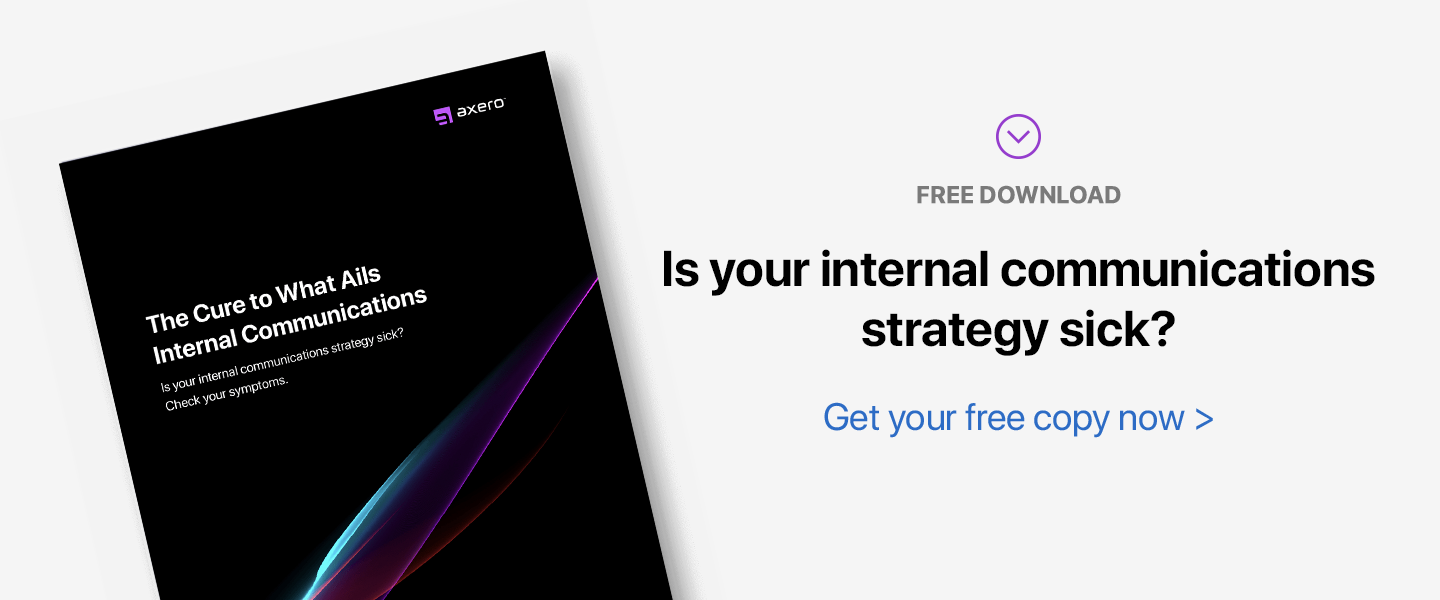
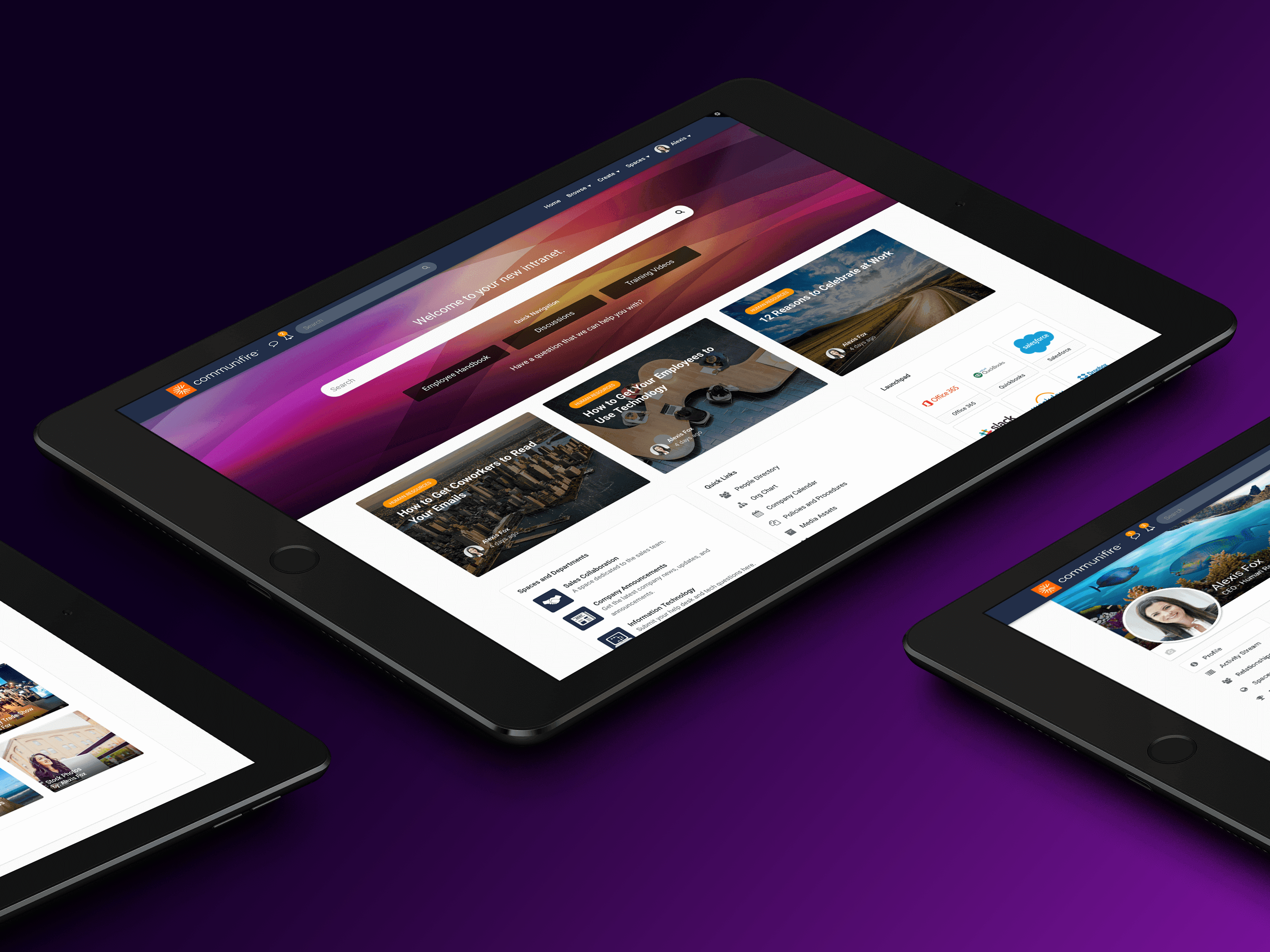
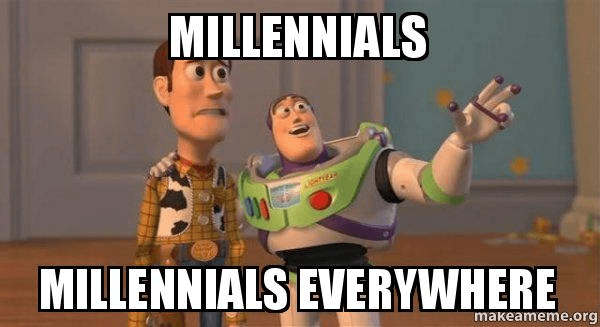
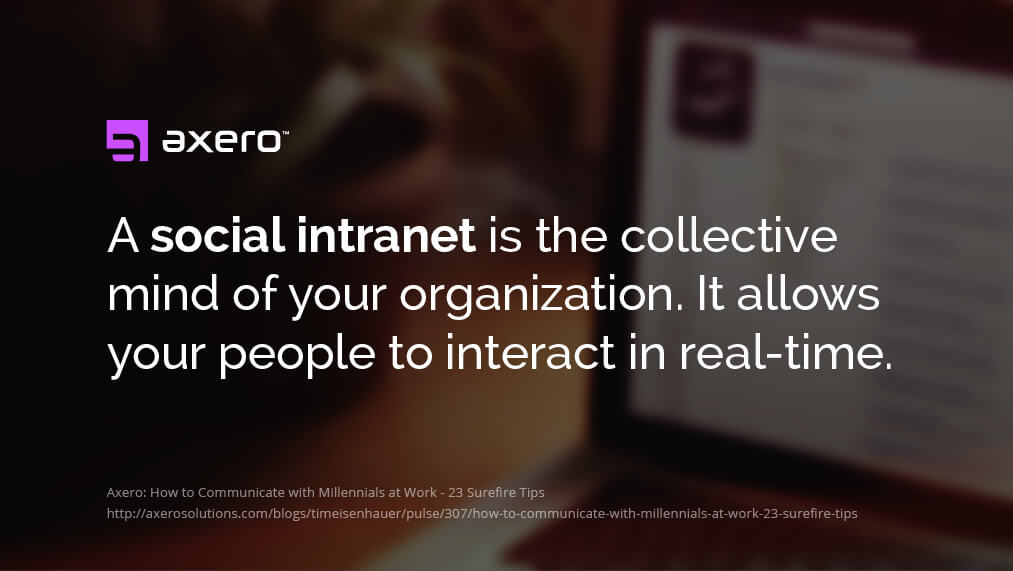
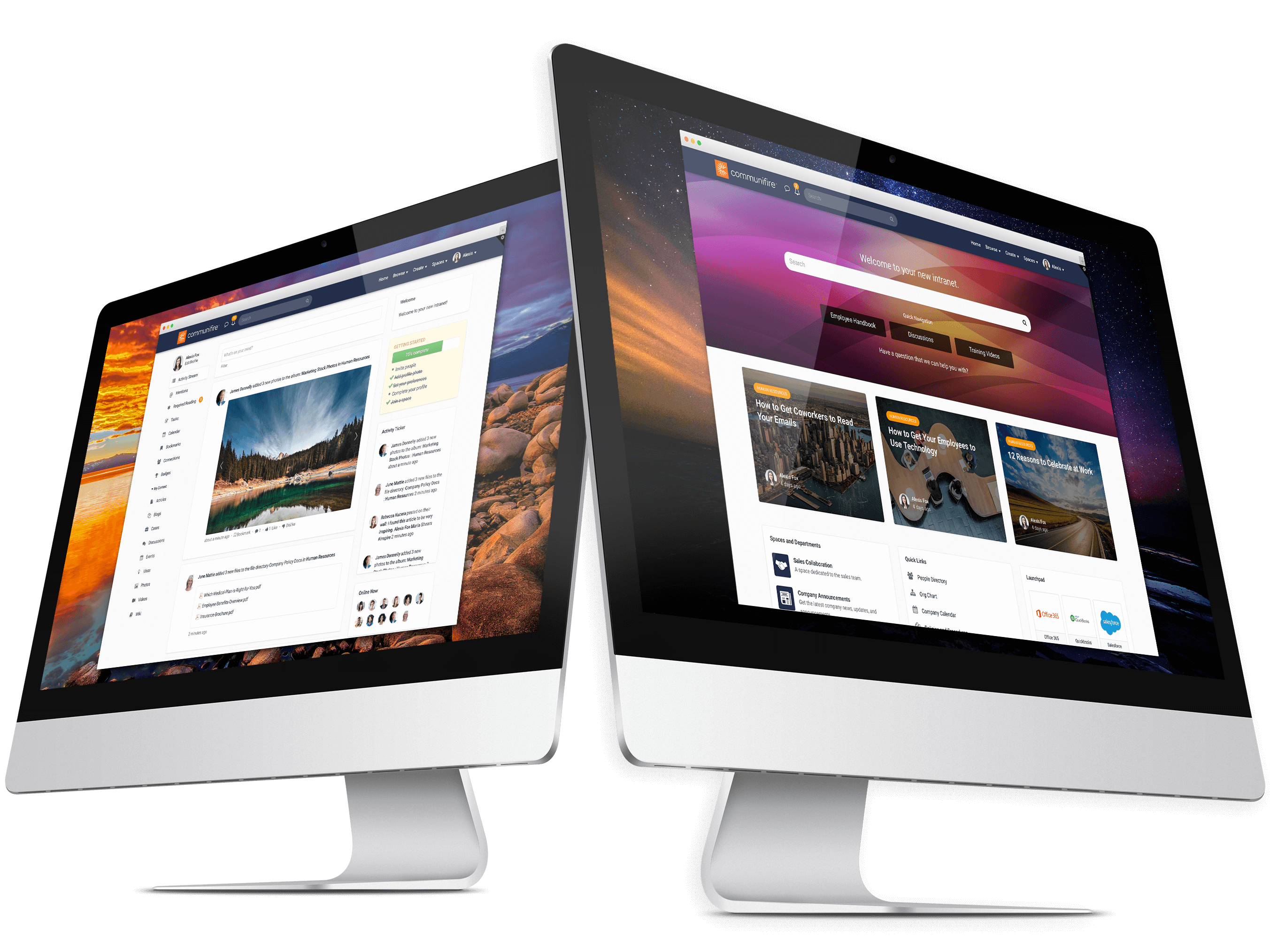
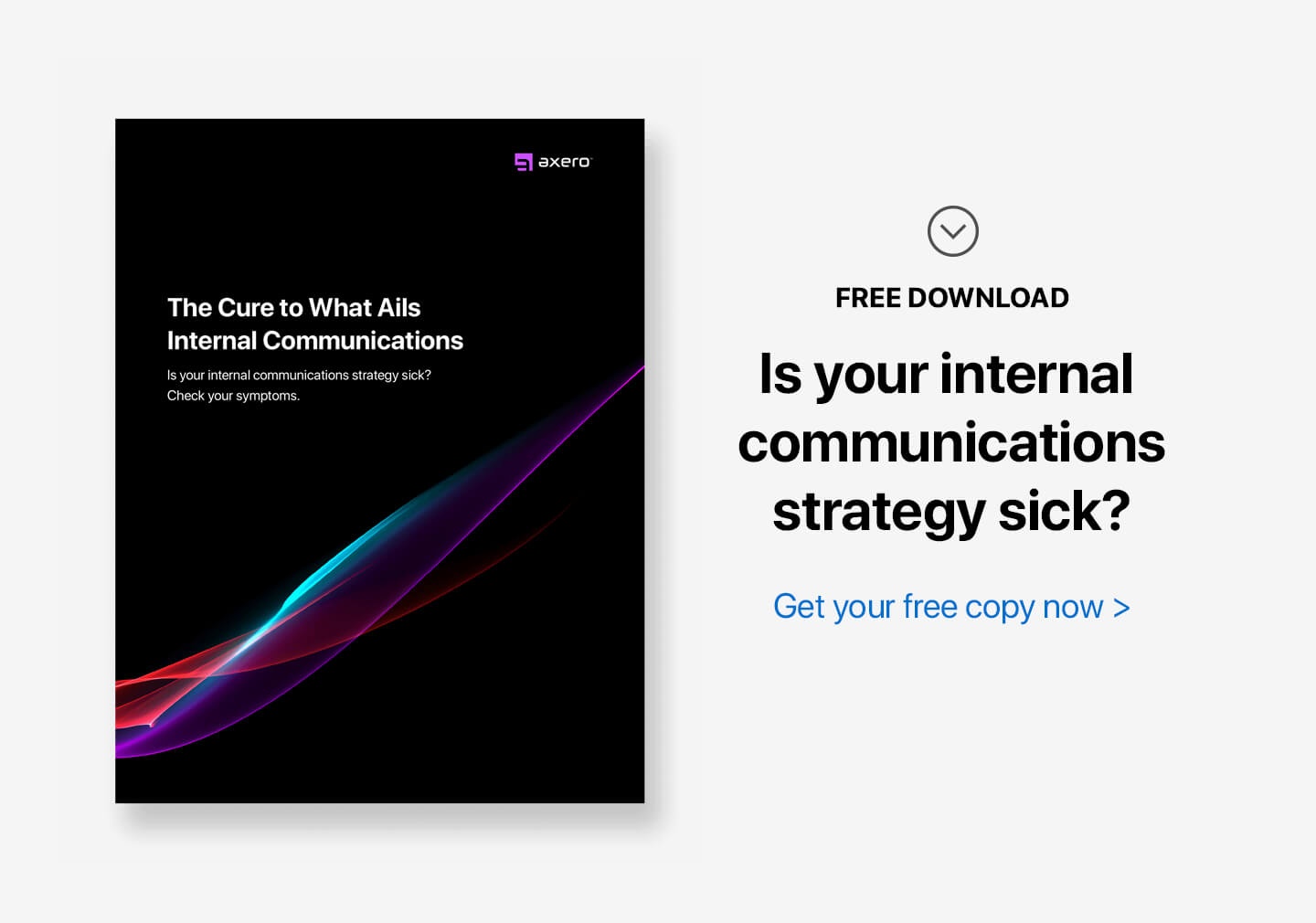

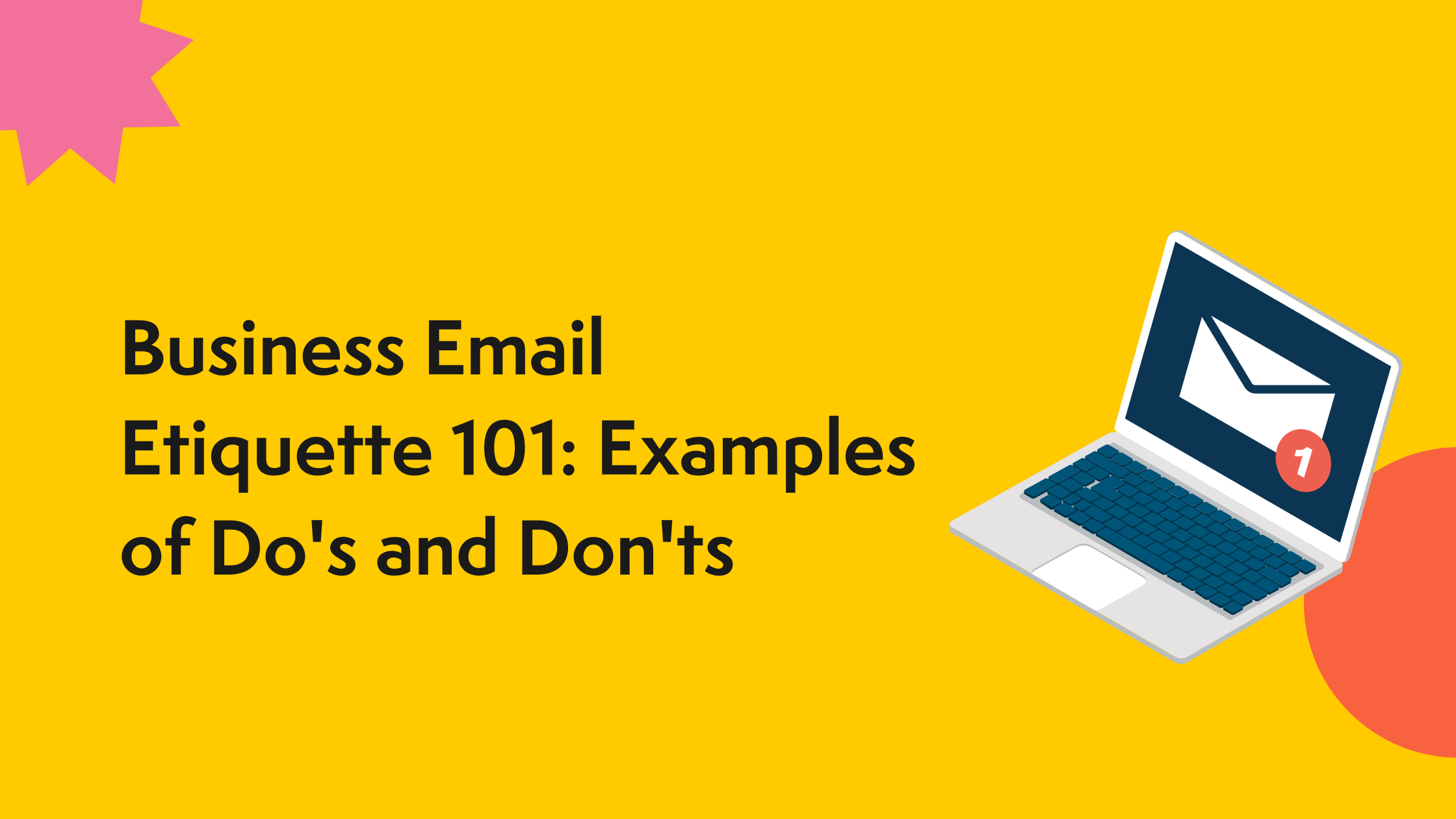



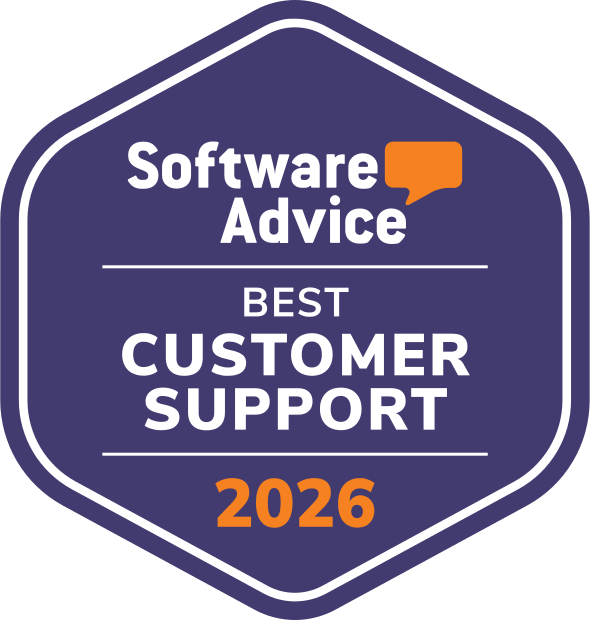




 info@axerosolutions.com
info@axerosolutions.com 1-855-AXERO-55
1-855-AXERO-55


